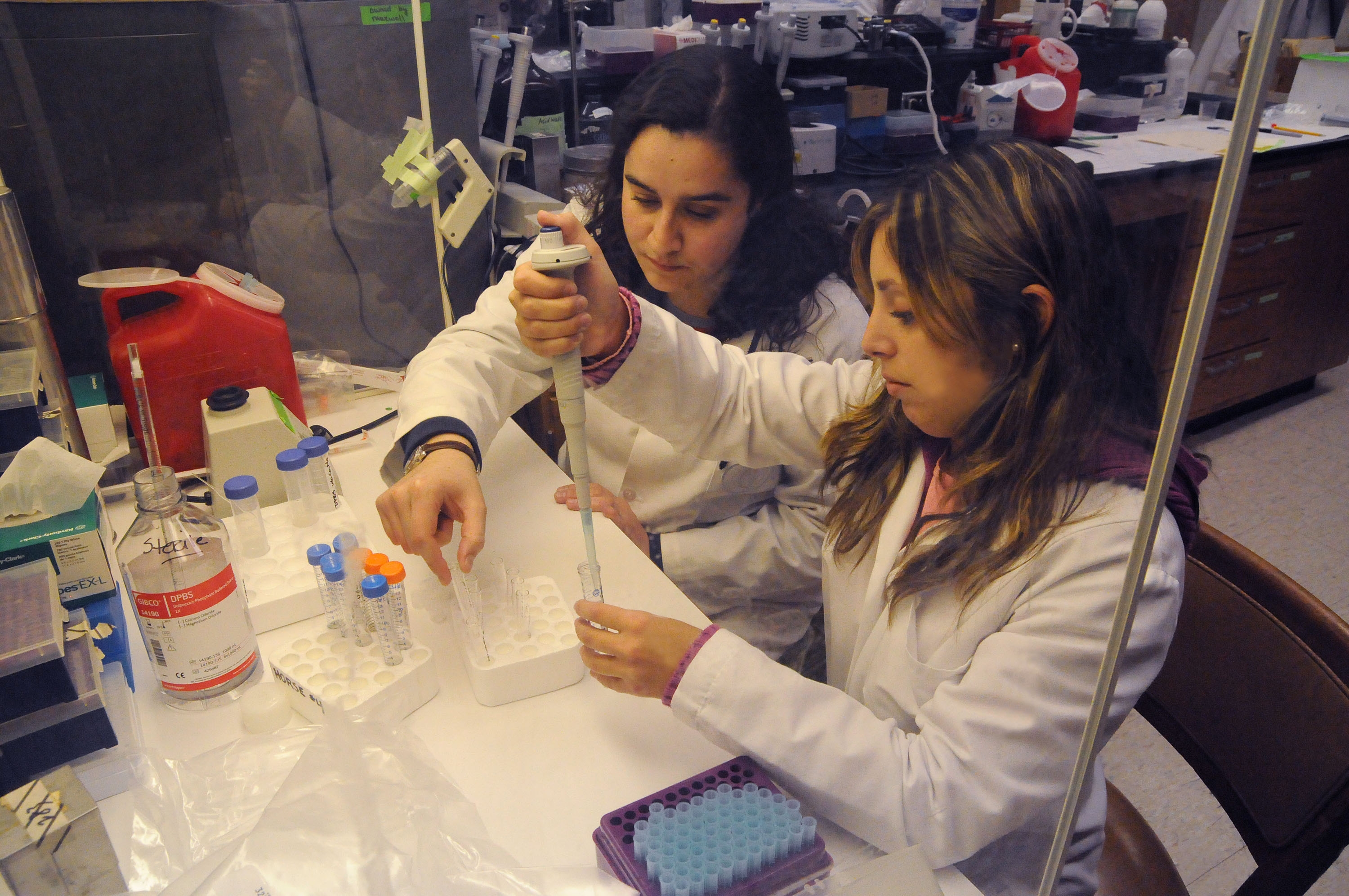Veterinary medicine professor and Chilean students partner to find treatment for equine heaves and human asthma

Much like asthma in humans, equine heaves is a chronic, often debilitating disease in horses. The symptoms can range from coughing, exercise, and work intolerance to, eventually, labored breathing even at rest.
Dr. Virginia Buechner-Maxwell, a professor in the Department of Large Animal Clinical Sciences in the Virginia-Maryland Regional College of Veterinary Medicine at Virginia Tech, is working at the molecular level to learn more about what causes this vexing disease.
"We look very closely at the pathogenesis of the disease," said Buechner-Maxwell, who is board certified by the American College of Veterinary Internal Medicine. "We want to know why this happens. Specifically, what goes wrong in the horse to allow it to develop this disease?"
Currently, Buechner-Maxwell is hosting two exchange students from Chile who are helping her answer this question; Dr. Marianne Werner, a veterinarian who is here earning her master of science degree, and Sofia Oettinger, a veterinary student from the University of Austral who is conducting research at Virginia Tech as part of her senior thesis.
Together, they are investigating a particular receptor that is, in part, responsible for initiating the inflammatory process. They are looking for ways to modify the response of immune cells by using albuterol, a medication that is commonly prescribed to treat human asthma. Albuterol is often administered to help relax the muscle around the airways of the lung and increase airflow.
The results of these studies may be helpful to both horses and humans, since horses are one of the few animals that naturally develop an asthma-like syndrome. In addition, "heavey" horses also respond to all the same medications that asthmatic humans do.
While albuterol has been used for many years as a treatment for asthma, according to Buechner-Maxwell, it has been recently discovered that long-term use of the drug could actually pose a threat to those who take it. Buechner-Maxwell's lab is looking at the possibility of reducing the risk of long-term exposure to the drug by adding something as simple as magnesium.
"When albuterol binds with inflammatory cells, it sets off a whole of series of events, including one that is dependent on magnesium," explains Buechner-Maxwell. "By altering the amount of magnesium in the cell's environment, you can make it respond in a completely different way."
This modification could help both four-legged and two-legged patients.
"My goal is to find a more natural and cost effective treatment for horses which will eventually translate into better and safer treatments for people with asthma," said Buechner-Maxwell.
Buechner-Maxwell earned her doctor of veterinary medicine from the Virginia-Maryland Regional College of Veterinary Medicine in 1987. Prior to joining the faculty of the college in 1995, she was an instructor of equine internal medicine and a National Institutes of Health postdoctoral research fellow for the division of pulmonary medicine in the Internal Medicine Department at the University of Michigan.
Listen to the related podcast. (Length 0:48)




.jpg.transform/m-medium/image.jpg)